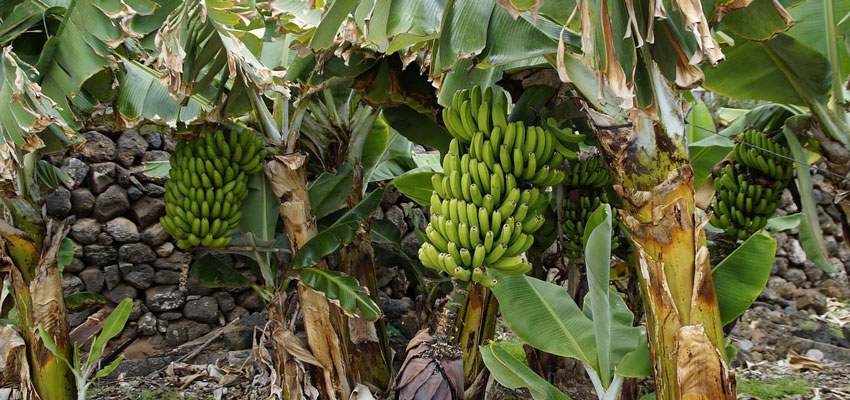It is a consequence of the monoculture practiced for years in banana cultivation. The soil fungus Fusarium oxysporum f. sp. Cubense attacks banana plants and causes them to die. It is resistant to all known fungicides.
The vast majority of bananas traded and consumed worldwide belong to the seed-free variety "Cavendish", whose perennials are propagated by soil cuttings. Thus, all Cavendish bananas now have the same genome and are particularly susceptible to infections.
The soil fungus TR 4 (Tropical Race 4) is a soil fungus that attacks the roots of the shrubs and causes them to die. It has been known for a long time. The disease is also known as Panama disease because it first appeared there and destroyed many plantations. Soils infested with the fungus cannot be used for banana cultivation for decades to come. For Colombia, one of the largest exporters of Cavendish bananas, this means a national emergency.
It seems however, that organically grown bananas are more robust. This fungus spreads particularly quickly in soils that have been leached out by decades of monoculture and the use of pesticides. In ecologically managed plantations, the soils have a healthy microflora that inhibits the fungus from spreading.
The bananas of infested shrubs can be consumed without hesitation, but a dramatic rise in the price of fruit is expected in the coming years. In Germany at present 90% of all traded bananas are Cavendish bananas from Colombia.
Quelle: ICA Colombia
Link: https://www.ica.gov.co
Author: Frank Mörsberger

 LinkedIn
LinkedIn ALOOSTA
ALOOSTA Contact
Contact
 Contact
Contact Career
Career